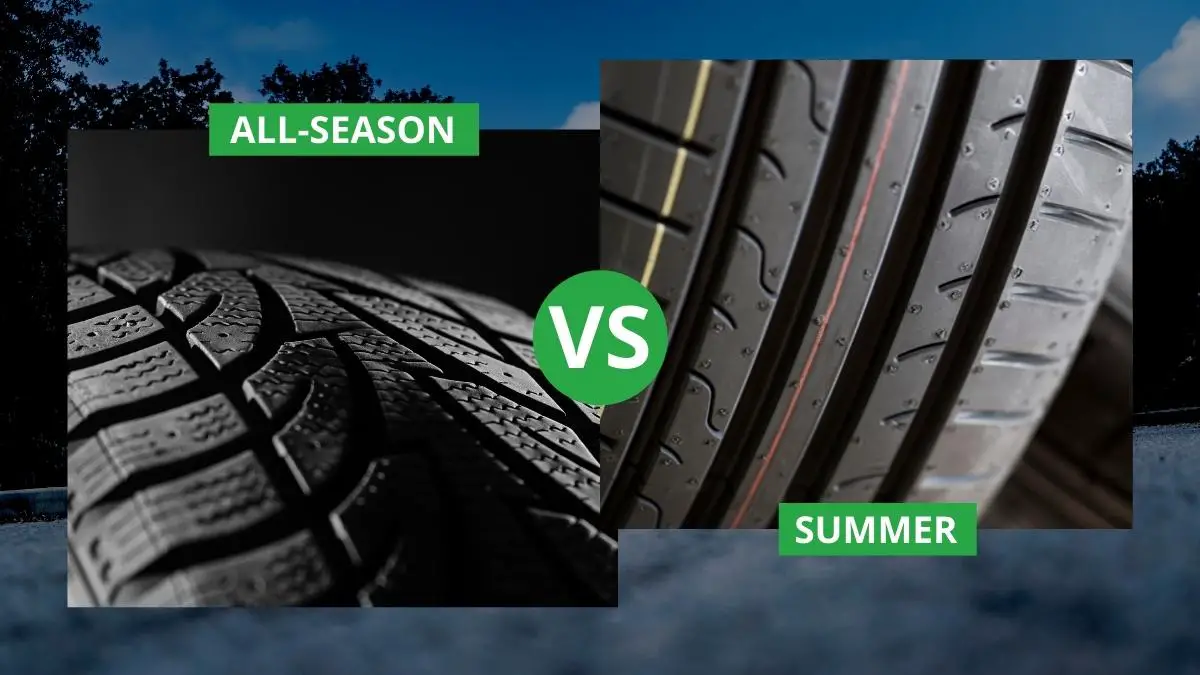Are you an average driver and don’t know what to choose between all-season and summer tires?
Both are made for different functions and can influence your car differently regarding handling, performance, and safety.
We’ve provided some important information on both types to help you understand their differences. Moreover, this article will help you understand which one is best for you in different climates and your driving habits.
What Are All-Season Tires?
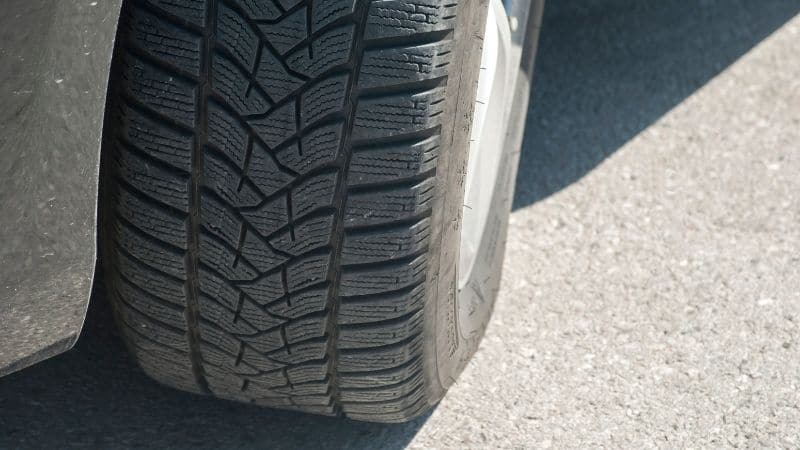
All-season tires are designed for use in all weather conditions. These tires can provide optimum performance in areas with relatively mild summers and winters. As long as the temperatures are not extremely cold or extremely hot, you will enjoy everything you need in terms of performance from choosing all-season tires.
All-season tires are typically more long-lasting compared to summer tires and minimize the urge for frequent tire changes when seasons change, which is a big positive.
Want to learn more about all-season tires? Check out our post called “All-Season Tires: What They Are & Why You Should Use Them”.
The Pros of All-Season Tires
By choosing all-season tires, you will enjoy several benefits.
1. Versatility: As said above, all-season tires are fit for use throughout the year. They are made for use in all weather conditions and many (not all) of them are approved for snow and mud by the Rubber Manufacturers Association.
Since they are designed to withstand all kinds of weather, they are durable with tread wear that works well in dry and wet conditions. Most all-season tires bear an “M+S” mark on their sidewall to show that they are certified to withstand mud and snow.
2. Convenience: As mentioned above, all-season tires do not require change as season changes, which means you will spend less time at the repair shop to have your tires changed. This is a big convenience factor in your hectic program.
3. Economically Friendly: Notably, all-season tires are budget-friendly compared to snow tires. Purchasing a specialized set of mud tires means that you will need to professionally change them when the season comes; this is not the case with all-season tires. Additionally, using all-season tires means fewer visits to the mechanic hence less expenses.
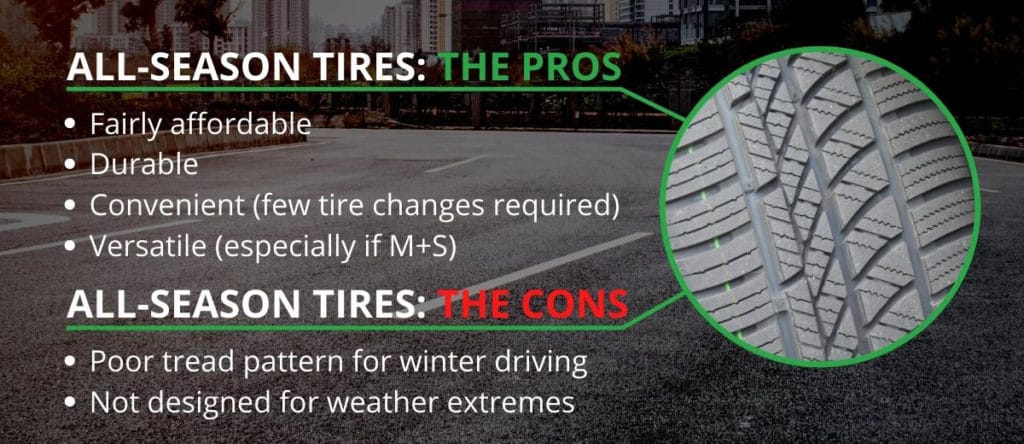
Cons of All-Season Tires
Though all-season tires provide numerous benefits, they still have their downsides.
1. Poor Tread Pattern For Winter Driving: All-season tires come with a shallower tread pattern in order to provide a smooth driving experience. However, this does not go well in deep snow since they can’t provide enough grip and hence reduce safety.
In addition, the tread material is also designed to work in summer conditions as well, which means the material hardens below freezing temperature hence causing a reduction in traction.
2. Not Designed for Weather Extremes: All-seasons tires, as mentioned above, are designed to work under mild conditions in all kinds of weather. However, they are not designed to work in extreme weather like Snowy Mountains and desert heat conditions.
Snowy conditions expose the tires to excessive handling, hence reducing road traction. On the other hand, the high heats hasten their tear and wear past the average rate and reduce traction.
What Are Summer Tires?
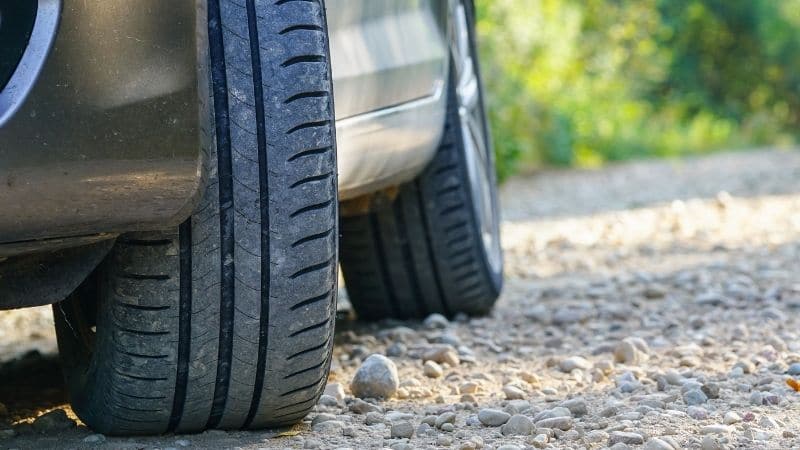
Summer tires are designed with a specific rubber material that provides excellent grip on dry and wet roads.
These tires are very quiet, even on highways. They are designed to optimize contact with the surface, which provides drivers with greater stability, control, and braking capabilities on dry and hot or wet roads.
They come with wider channels that drive water away from the tire’s center and help maintain the tire cool on hot summer days.
Since these tires are made for warm seasons, they are definitely not fit for winter conditions such as driving in snow, sleet, ice, and slush and temperatures below 7 degrees Celsius (45 degrees Fahrenheit). The rubber used in constructing the tires cannot stay flexible during cooler temperatures making it risky to drive on summer tires.
Pros of Summer Tires
1. Stability: Since summer tires come with lower grooves in the tread, they provide better handling during braking, acceleration, and turning corners.
2. Fuel Economy: Since summer tires have less friction on the road and better energy economy, they will improve fuel economy if used in the appropriate condition.
3. Better in Wet Conditions: The rubber compound used to construct tread on summer tires provides excellent grip on wet surfaces, reducing the risks of hydroplaning.
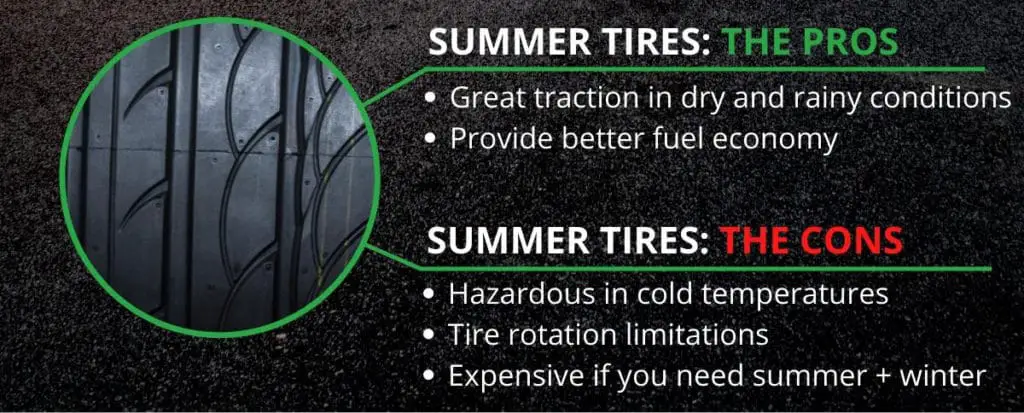
Cons of Summer Tires
1. Hazardous in Cold Temperatures: Several tests have shown that summer tires are unsafe and should not be used in temperatures below 45 degrees Fahrenheit (7 degrees Celsius).
2. Tire Rotation Limitations: Because of the unique tread patterns, summer tires have limited rotation options. For instance, the rear tires might be able to be rotated, but the front and forward tires cannot. This makes the treads wear out faster.
3. More Expensive: Since summer tires have less traction in colder conditions, you will require two sets of tires if you reside in a place with temperatures below 45 degrees. Purchasing two sets is more costly than buying a single set of all-season tires.
The Differences Between All-Season And Summer Tires
| Property | Summer Tires | All-Season Tires |
| Structure | Less tread depth, wide tread blocks | Moderate tread depth, more defined tread blocks |
| Optimal Temperature | Above 45 degrees F (7 degrees C) | 30 degrees F (-1 degree Celsius) and above if they are marked M+S. If not M+S, above 45 degrees F (7 degrees C). |
| Rubber Compound | Hard rubber compounds that soften in heat | Moderate rubber compounds engineered for long life & varying temperatures |
| Grooves | Wide circumferential | Moderate, often combined with siping |
| Traction | Strong, responsive grip in dry and rainy conditions | Solid, stable grip in varying seasons |
| Tread Life | About 25K miles | About 60K miles |
| Best Suited For | High-performance vehicles | Passenger cars & CUVs |
So, Which Should You Pick? All-Season or Summer Tires?
Which tires are right for your vehicle can be answered depending on where you drive and how often. If you live in places like San Diego and southern California, you will enjoy the better overall performance from summer tires. Likewise, consider summer tires for luxury, high-performance, and racing vehicles in heavy winter conditions.
You should choose all-season tires or a combination of winter and summer tires if you fall into either of these categories:
- Frequently drive to cold and wet places during winter seasons.
- Drive a vehicle that is not well fit to summer tires, such as a high towing capacity vehicle
- Anticipate moving out into a place with more winter weather conditions.
Irrespective of the type of tire that works best for your place, lifestyle, and vehicle, go for a new, high-quality tire made for your car type by a trustworthy manufacturer.
High-quality tires offer excellent overall performance in all weather conditions. Also, the tire’s size and specs are as important as the tire type. For instance, a tire size for a compact SUV would not work well on a car or full-size truck.
Are Summer Tires Harder Than All-Season Tires?
Summer tires are enhanced for better road grip even if it’s raining heavily, slightly damp or baking hot. They are designed to form a tread material with sticky additives for road grip on wet surfaces.
In addition, this tread blend offers the stiffness required for the tires to hold up and retain their shape even when the heat is on. This minimizes rolling resistance on hot pavement.
Though it may sound like news to most that summer tires outshine all-season tires when it comes to both dry and wet grip, here is something that may surprise: all-season tires don’t provide much winter grip at all. They become rigid at cold temperatures and are not a safe option in any ice or snowy conditions.
Want to learn more about whether using all-season tires during the winter in a good idea? Check out our post “Can You Use All-Season Tires During Winter?”.
Do All-Season Tires Wear Faster Than Summer Tires?
The main distinction between all-season and summer tires is their tread depths. All-season tires come with deeper treads than their summer counterparts.
They also have longer tread life than summer tires but don’t work well in highway speed situations. All-season tire engineering is focused on longevity, ride comfort and adaptability.
Are Summer Tires Quieter Than All-Season Tires?
Although tires have different road noise according to their unique designs, it is usually the reason why summer tires are quieter than their all-season counterparts. This is because of fewer tread “slits” and sipes in summer tires that help reduce pattern noise.
Due to this reason, summer tires are common with electric and hybrid vehicles, which do not have engine sounds to cover the noise your car produces when rubber contacts the road.
If a quiet, comfortable ride is your priority, summer tires are the perfect match.
You can read more about tire noise, what causes it, and how to reduce it in this post.
Our Top 3 All-Season Tire Picks
Bridgestone DriveGuard All-Season Tire
Are you looking for an ideal superhero when it comes to all-season tires? Bridgestone DriveGuard is an ideal replacement for touring tires on your crossover SUV, wagon, sedan, or minivan. It has outstanding features, such as enhanced silica compound for ultimate traction, control and precision handling.
Pros
- Offers long warranty
- Excellent traction and handling
- Offer a luxurious and smooth ride
Cons
- It can be a bit expensive
- Not best for larger SUVs and light trucks
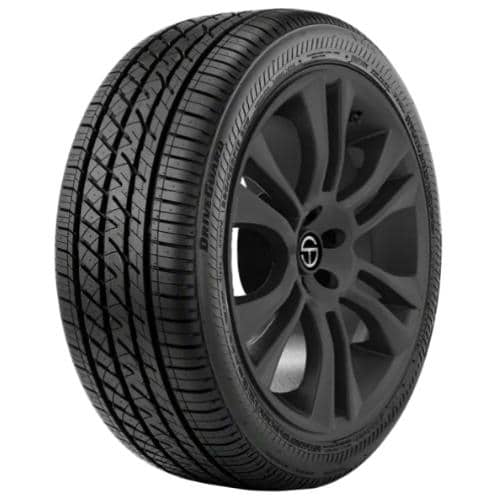
You can learn more about the Bridgestone DriveGuard All-Season Tires by pressing the button below
Michelin Defender LTX Tire
Michelin Defender LTX tires provide excellent performance in both wet and dry conditions. They come with a 70,000-mile warranty and one of the best UTQG ratings. These tires also improve fuel economy as long as you maintain your tire pressure.
Pros
- Unlimited warranty
- Enhanced fuel economy
- Top-notch wet performance
Cons
- Short tread life
- Lacks off-road performance
- It handles the same as performance tires
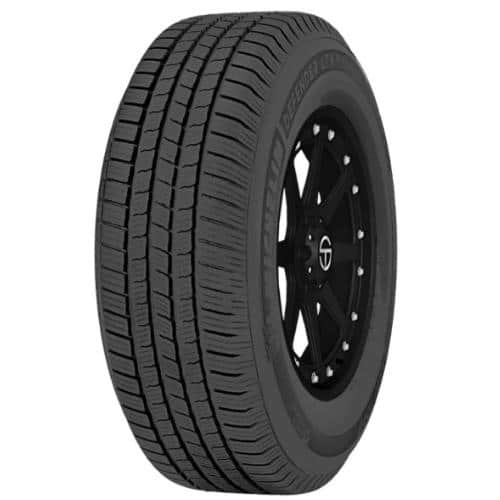
You can learn more about the Michelin Defender LTX Tire by pressing the button below
Michelin Primacy A/S
Michelin primacy tires offer excellent performance in rain and light snow conditions. They can support about 5,000lbs load capacity and come with a superior UTQG rating. These tires provide excellent dry road traction that lowers the tread wear and improves fuel economy.
Pros
- Slow tread wear
- Excellent warranty
- Excellent handling in ¼ – ½ snow
Cons
- Noisy (I’ve noticed this myself as I currently have these on my Kia eNiro)
- Early cracking on the sidewalls
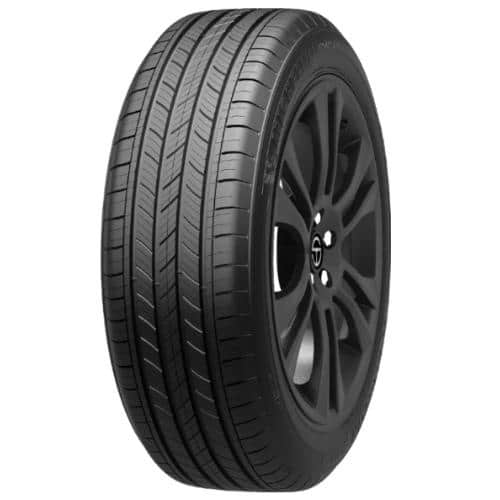
You can learn more about the Michelin Primacy A/S Tires by pressing the button below
Our Top 3 Summer Tire Picks
Michelin Pilot Super Sport
The reputation is one of the excellent high-performance tires launched as the OEM for most high-performance cars. This tire provides one of the best cornering grip and performance. Additionally, the Pilot Super Sport tire offers excellent traction on both wet and dry surfaces, and their ride comfort is equally as impressive.
Pros
- It comes with a 30,000-mile warranty
- Fairly lightweight
- Can withstand high pressure
- Provides excellent wet weather braking
- It has sound-absorbing foam to minimize cabin noise
Cons
- A bit costly
- Poor resistance to aquaplaning
- Can oversteer on wet surfaces
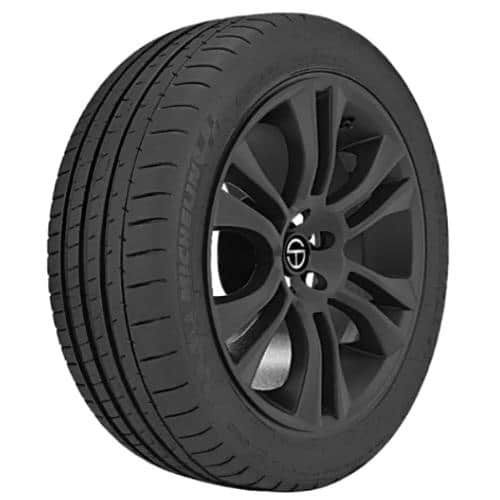
You can learn more about the Michelin Pilot Super Sport Tires by pressing the button below
Bridgestone Potenza S-04 Pole Position
Bridgestone Potenza S-04 Pole Position is an all-around performance tire that provides a well-rounded performance with better handling and an excellent cornering grip. This high-performance summer tire is optimized for dry, wet, and warm conditions.
Pros
- Has hydroplaning features
- It comes with interlocking tread blocks for high-speed cornering precision
- Features circumferential ribs for noise reduction
Cons
- No tread life warranty
- Has lower tread life than required
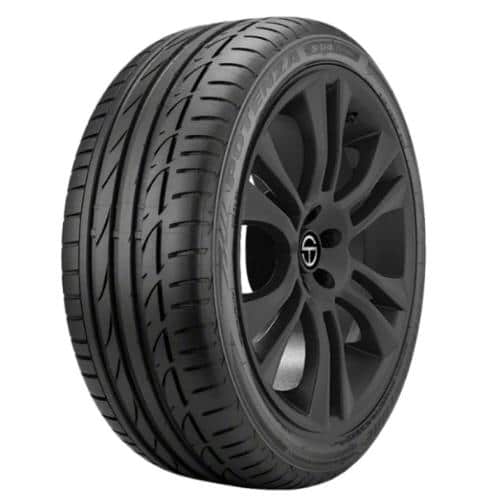
You can learn more about the Bridgestone Potenza S-04 Pole Position Tires by pressing the button below
Bridgestone Potenza RE760 Sport
The Potenza RE760 Sport features a design that maximizes the sport driving pleasures required when driving high-end luxury vehicles. It works best in both wet and dry conditions. The Bridgestone Potenza S-04 Pole Position has a long-lasting tread life and does not produce excessive road noise like other tires in this category.
Pros
- Increased handling and ride comfort
- Long-lasting tread wear life
- It comes with a computerized system that offers the improved high-speed capability
Cons
- Average wet traction
- It gets noisy with time
- Do not offer tread life warranty
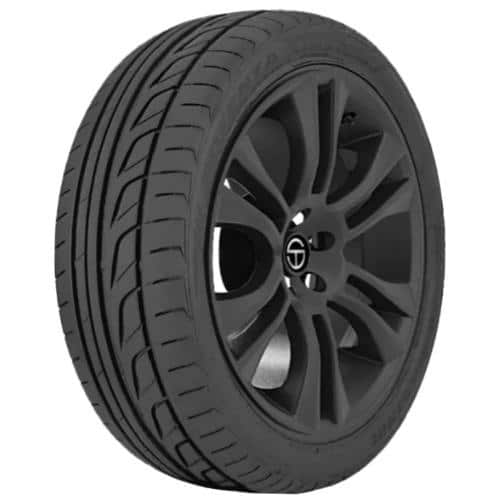
You can learn more about the Bridgestone Potenza RE760 Sport Tires by pressing the button below
Hi, my name is Niklas, the head content creator & CEO of Whirling Wheelz. I am very interested in vehicles of all kinds, mainly cars. I have a car mechanics degree from high school and a big hobby of mine is to follow the WRC (World Rally Championship) both online and through travel.

